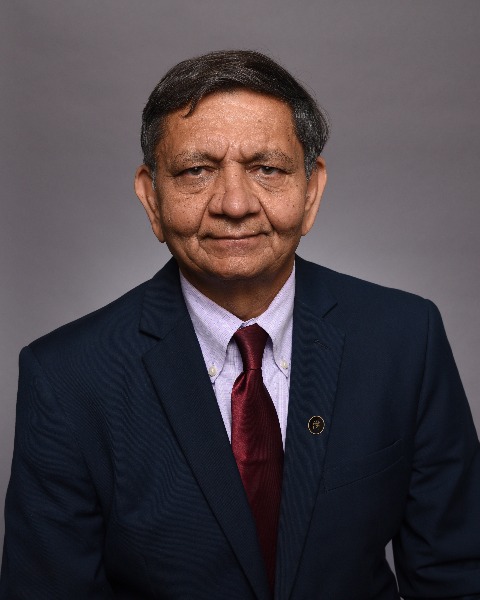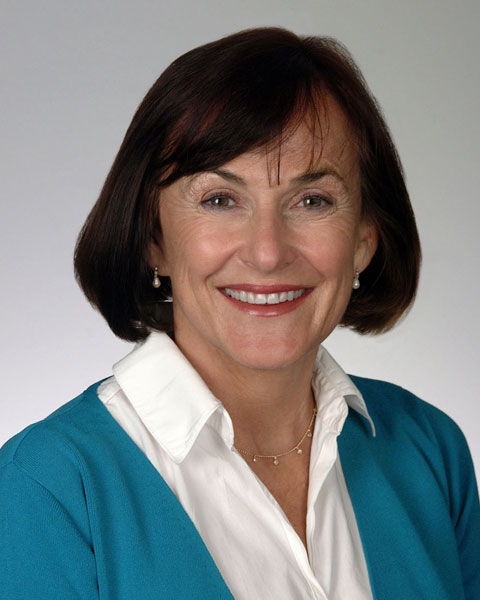
Advances in Treatments for Methamphetamine Use Disorder
- Registration Closed

Advances in Treatments for Methamphetamine Use Disorder
Recorded: Thursday, March 31, 2022 - Sunday, April 3, 2022
On-Demand Session
Overview
This 1-hour, on-demand session from the ASAM 53rd Annual Conference reviews planned clinical trials addressing the rise in methamphetamine use disorder to be conducted by NIDA's National Drug Abuse Treatment Clinical Trials Network (CTN).
Although treatment admissions for methamphetamine use disorder (MUD) have risen, there are few effective treatments and no FDA approved medication to date. In this session, the presenters will provide research updates on treatments for MUD focusing on pharmacotherapy, brain stimulation, including transcranial stimulation (TMS), and Ketamine. Each presenter will provide a draft outline for respective planned clinical trials to be conducted in NIDAs National Drug Abuse Treatment Clinical Trials Network (CTN). The session will conclude with a chair-moderated panel discussion and audience question and answer segment.
The target audience for this Intermediate level session includes physicians, nurse practitioners, physician assistants, other clinicians, researchers, residents, fellows, students, and counselors.
This session addresses the following ACGME Competencies: Patient Care and Procedural Skills, Medical Knowledge.
Learning Objectives
Upon completion, learners will be able to:
- Demonstrate an increased knowledge of pharmacotherapy options for the management of methamphetamine use disorder
- Discover the mechanisms and utility of brain stimulation techniques including transcranial magnetic stimulation in the management of methamphetamine use disorder
- Articulate the role of glutamatergic dysregulation in methamphetamine use disorder, and potential therapeutic options to address this problem
Registration Rates
| Rate Description | Rate |
| ASAM Member | $29 |
| Non-Member | $39 |
| Associate Member | $19 |
| Resident Member* | $19 |
| Student Member* | $19 |
*Residents, Fellows-in-training, Interns, and Students must join ASAM to receive a discounted registration rate. Click here to become an ASAM member. National and Chapter membership dues apply. There is no charge for Students to become a Member, but verification of student status is required.
Membership Question? Call ASAM at 1.301.656.3920, email us, or view the ASAM website for more information.
Refunds & Cancellations
All ASAM e-Learning Center refund requests must be made in writing to education@asam.org within 90 days of purchase. Those requesting refunds for courses that are in progress will receive partial refunds or e-Learning Center credit. Automatic full refunds will be made for any course with a live-course component that has been cancelled.
Registration Deadline: 05/01/2025
Course Instructions
- Click on the Contents tab to watch the on-demand recording.
- Click Complete Post Test to answer multiple choice questions. Participants will have 10 attempts to pass and must answer 2 out of 3 questions correctly.
- Click Complete Evaluation to provide valuable activity feedback. Scroll down on all questions as there may be answer options that expand past the size of the window.
- Click the button Claim Medical Credits in the box titled Claim Credits & Certificate. Choose the type of credit and click submit. Click the button View/Print Certificate to save or print your certificate. You can view/print your certificate at any time by visiting the ASAM eLearning Center, clicking Dashboard, and clicking Transcript/Achievements.
Need Assistance?
For assistance logging in, accessing activities, claiming credit, or for other questions or concerns, please check the FAQ page or e-mail Education@ASAM.org
ASAM is proud to offer Essential Accessibility to ensure our website is accessible and functional for all our learners while providing free assistive technology for people with the widest possible range of abilities.

Madhukar H. Trivedi
MD
Madhukar Trivedi is Professor of Psychiatry, Chief of the Division of Mood Disorders, and Director of the Center for Depression Research and Clinical Care at UT Southwestern Medical Center. He earned his MBBS and MS in Baroda, India, completing his residencies in Psychiatry at University General Hospital, Baroda, India and Henry Ford Hospital, Detroit, Michigan. He completed his fellowship at UT Southwestern, where he now serves as Betty Jo Hay Distinguished Chair in Mental Health and Julie K. Hersh Chair for Depression Research and Clinical Care. Certified by the American Board of Psychiatry and Neurology, Dr. Trivedi is an established clinical and translational researcher with extensive experience serving as PI and Co-PI on several single and multi-site clinical trials funded by NIH, foundations and industry sponsors.
Dr. Trivedi’s research over the last 25 years has focused on understanding the neurobiology and psychology of depression and bipolar disorder, with a particular focus on developing an empirical basis for improving treatment of depression. Dr. Trivedi and his team have been involved in many of the pivotal studies involving the establishment of efficacy of antidepressant treatments (medications, psychotherapy, exercise, complimentary treatments, devices, etc.), examining next steps in treatment resistant depression to develop algorithms and guidelines, and developing and validating biomarkers in order to reach the goal of precision medicine for mood disorders. Among his most notable studies are the Establishing Moderators and Biosignatures of Antidepressant Response for Clinical Care (EMBARC) trial, Combining Medications to Enhance Depression Outcomes (CO-MED) trial, Sequenced Treatment Alternatives to Relieve Depression (STAR*D) study, and the Texas Resilience Against Depression (T-RAD) study.
Does Disclose: Alkermes; monetary payment; Consulting Alto Neuroscience Inc; monetary payment & stock investments; Stockholder / Scientific Advisory Axsome Therapeutics, Inc.; N/A; Consulting Biogen MA Inc; monetary payment; Consulting Circular Genomics Inc.; stock investments; Consulting / Stockholder GH Research Limited; monetary payment; Consulting GreenLight VitalSign6; stock investments; Stockholder / Scientific Advisory Heading Health, Inc; n/a; Scientific Advisory; Janssen; n/a; Consulting Legion Health; stock investment; Stockholder / Scientific Advisory Mind Medicine (MindMed) Inc.; n/a; Consulting Neurocrine Biosciences Inc; n/a; Consulting Orexo US Inc; monetary payment; Consulting / Scientific Advisory Otsuka America Pharmaceutical, Inc.; monetary payment; Consulting Otsuka Canada Pharmaceutical Inc; monetary payment; Consulting Otsuka Pharmaceutical Development & Commercialization, Inc.; monetary payment; Consulting; Sage Therapeutics; monetary payment; Consulting Takeda Pharmaceutical Company Ltd.; n/a; Consutling WebMD; monetary payment; Consulting Sparian Biosciences; n/a; Consulting

Dr. Kathleen T. Brady
MD, PhD
Dr. Brady is an experienced clinical and translational researcher and has been conducting scientific investigations and clinical work in the field of addictions and psychiatric disorders for over 30 years. Her research focuses on pharmacotherapy of substance use disorders, comorbidity of psychiatric disorders and addictions (e.g., posttraumatic stress disorder and bipolar disorder), gender differences and women’s issues in addictions, and the neurobiologic connections between stress and addictions. She has received numerous federal research grants and has published over 300 peer-reviewed journal articles and co-edited 10 books. She is the Vice President for Research at the Medical University of South Carolina. She is the principal Investigator of MUSC’s Clinical and Translational Science Award (CTSA), Principal Investigator of the Southern Consortium Node of the NIDA-funded Clinical Trials Network and Director of MUSC’s Women’s Research Center. Her dedication to furthering research careers has attracted a number of junior investigators and clinicians. She has served at the President of the Association for Medical Education and Research in Substance Use Disorders (AMERSA), the American Academy of Addiction Psychiatry (AAAP) and is currently the President of the International Society of Addiction Medicine (ISAM).

Manish Jha
MBBS
Dr. Manish Jha is Assistant Professor of Psychiatry at Center of Depression Research and Clinical Care at UT Southwestern Medical Center, Dallas, TX. He conducts clinical research that aims to identify the biological mechanisms of depression, anxiety and substance use disorders in order to inform the development of novel treatments. He received his medical degree from Maulana Azad Medical College in New Delhi, India and completed his residency training in Psychiatry at UT Southwestern Medical Center, Dallas, TX. He is a Member of the Society of Biological Psychiatry and American Society of Clinical Psychopharmacology. In addition to his research and educational activities, Dr. Jha maintains an active clinical practice focusing on evidence-based interventions for difficulty-to-treat depressive and anxiety disorders. He has received travel/new investigator awards from several national and international societies. He has authored/co-authored over 100 manuscripts.
CME, CE, CEU and Other Credit Types

ACCME Accreditation Statement
The American Society of Addiction Medicine is accredited by the Accreditation Council for Continuing Medical Education (ACCME) to provide continuing medical education for physicians.
AMA Credit Designation Statement
The American Society of Addiction Medicine designates this enduring material for a maximum of 1 AMA PRA Category 1 Credits™. Physicians should claim only the credit commensurate with the extent of their participation in the activity.
NAADAC, the Association for Addiction Professionals
This activity has been approved by the American Society of Addiction Medicine, as a NAADAC Approved Education Provider, for educational credits. NAADAC Provider #295, ASAM is responsible for all aspects of the programming.
California Association for Drug/Alcohol Educators (CAADE)
This educational program is approved by CAADE: #CP40 999 1222.
California Association of DUI Treatment Centers (CADTP)
This educational program is approved by CADTP: #205.
California Consortium of Addiction Programs and Professionals (CCAPP)
This educational program is approved by CCAPP: #OS-20-330-1222.
Continuing Education Credits (CEUs)
Non-physician participants will receive a certificate of attendance upon completion of the activity and an online evaluation confirming their participation. Participants should submit his/her certificate of attendance to their professional organization/institute.
Maintenance of Certification (MOC) or Continuing Certification Programs (CCP)
American Board of Medical Specialties (ABMS)
Through the American Board of Medical Specialties (“ABMS”) ongoing commitment to increase access to practice relevant Continuing Certification Activities through the ABMS Continuing Certification Directory, The ASAM 53rd Annual Conference has met the requirements as a MOC Part II CME Activity (apply toward general CME requirement) for the following ABMS Member Boards: Allergy and Immunology, Anesthesiology, Colon and Rectal Surgery, Family Medicine, Medical Genetics and Genomics, Nuclear Medicine, Physical Medicine and Rehabilitation, Plastic Surgery, Preventive Medicine, Psychiatry and Neurology, Radiology, Thoracic Surgery, Urology
American Board of Preventive Medicine (ABPM)
The American Board of Preventive Medicine (ABPM) has approved this activity for a maximum of 1 credit towards ABPM MOC Part II requirements.
American Board of Anesthesiology (ABA)
This activity contributes to the CME component of the American Board of Anesthesiology’s redesigned Maintenance of Certification in Anesthesiology TM (MOCA®) program, known as MOCA 2.0®.
American Board of Pediatrics (ABP)
Successful completion of this CME activity, which includes participation in the activity, with individual assessments of the participant and feedback to the participant, enables the participant to earn a maximum of 1 MOC point in the American Board of Pediatrics’ (ABP) Maintenance of Certification (MOC) program. It is the CME activity provider’s responsibility to submit participant completion information to ACCME for the purpose of granting ABP MOC credit.
American Board of Internal Medicine (ABIM)
Successful completion of this CME activity, which includes participation in the evaluation component, enables the participant to earn up to 1 Medical Knowledge MOC point in the American Board of Internal Medicine’s (ABIM) Maintenance of Certification (MOC) program. Participants will earn MOC points equivalent to the amount of CME credits claimed for the activity. It is the CME activity provider’s responsibility to submit participant completion information to ACCME for the purpose of granting ABIM MOC credits.
American Board of Surgery (ABS)
Successful completion of this CME activity, which includes participation in the evaluation component, enables the learner to earn credit toward the CME and/or Self-Assessment requirements of the American Board of Surgery’s Continuous Certification program. It is the CME activity provider's responsibility to submit learner completion information to ACCME for the purpose of granting ABS credit.
American Board of Psychiatry and Neurology (ABPN)
Successful completion of this CME activity can be used to satisfy the American Board of Psychiatry and Neurology’s (ABPN) CME requirement for Maintenance of Certification program.
American Board of Addiction Medicine (ABAM)
Successful completion of this activity can be used to satisfy the American Board of Addiction Medicine (ABAM) Tmoc credit requirements.
Royal College of Physicians and Surgeons of Canada (RCPSC)
Royal College Fellows can use participation in Accredited Continuing Medical Education to earn Section 3 Credits.
Disclosure Information
In accordance with disclosure policies of ASAM and the ACCME, the effort is made to ensure balance, independence, objectivity, and scientific rigor in all CME activities. These policies include mitigating all possible relevant financial relationships with ineligible companies for the Planning Committees and Presenters. All activity Planning Committee members and Faculty have disclosed relevant financial relationship information. The ASAM CME Committee has reviewed these disclosures and determined that the relationships are not inappropriate in the context of their respective presentations and are not inconsistent with the educational goals and integrity of the activity.

